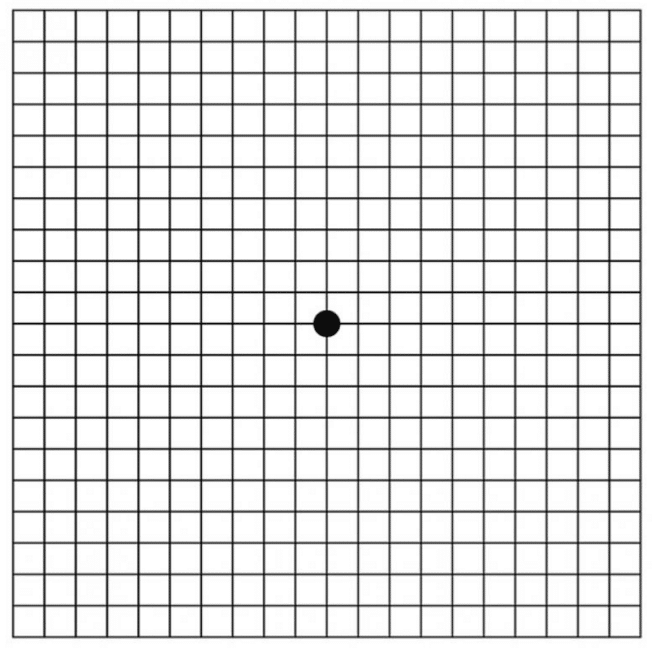Awareness of macular degeneration is growing. Often people are coming for an eye examination because of public education campaigns about the importance of regular eyecare. This is a very good thing and a message we thoroughly support.
From an optometrist’s viewpoint it is always a heartsink moment when, as part of a routine appointment, I see early signs of macular degeneration. Depending on what people know about this condition, hearing this information can be very distressing. This can be a shock which can impact on understanding or even hearing the rest of the consultation and the implications of the diagnosis.
But let’s give it some context.
Nine out of ten cases of macular degeneration are described as ‘dry’. While vision does deteriorate, progression can be very slow.
What about the 10th case? These are commonly referred to as ‘wet’ macular degeneration. The change in vision is usually much more noticeable, including distortion. But there is treatment. This is delivered by injection. Many people have macular degeneration treated this way, and sometimes the outcomes can be quite good.
If you are told you have early signs of macular degeneration my recommendations are:
A healthy diet can help your eye health
Read the material from Macular Degeneration NZ - their handouts and website are excellent.
Put the Amsler Grid somewhere handy and check it regularly.
Do an audit of your diet to make sure you are covering all the recommendations. If not, consider supplements.
Take a careful look at home lighting and make any improvement possible. Particularly useful is to increase light levels in places you like to read. This can make an appreciable impact on your reading. Daylight lamps are excellent.
Same goes for magnifying glasses. Often these can be buried in a drawer somewhere. Clean them and leave them in the kitchen and bathroom where they are easily accessible for reading small print on labels.
Prepare for the worst and hope for the best, but start small. Don’t leap straight to thinking about not driving and having to move house. Instead channel that energy into trying new technology. Have you listened to an audio book from the library? Can you take a photo of a label with your phone and magnify it? Have you ordered groceries online?
Talk to your friends and peers. There may be people you know in the same situation, and hearing their stories can be very helpful.
The Amsler grid can help detect early sign of retinal disease and monitor changes in vision after diagnosis.
Remember to talk to your optometrist. When you have had time to process the information if you have questions come back to us, we are here to help.


